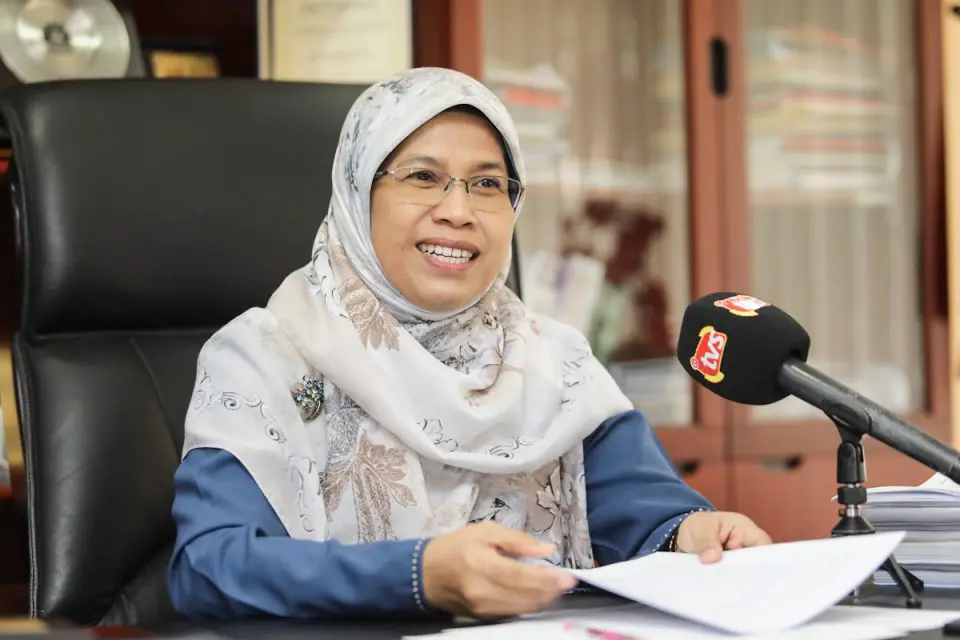By Ashwin Kumar
THE Covid-19 pandemic has proven digital transformation to be essential in driving the economy forward.
Many businesses, including those in farming and fishery, have moved towards digitalisation and ventured into e-commerce to keep afloat during the movement control order (MCO) period due to the restrictions imposed.
With its Smart City goals in place, Selangor is set to become a game-changer in bringing digitalisation to the next level.
State Entrepreneur, Rural, Village and Traditional Village Development Committee chairman Rodziah Ismail said digital transformation is key to reshaping the economy in rural areas, which in turn would reduce household income disparity in the rural-urban divide.
“Entrepreneurs should stay creative and innovative by leveraging on the various smart technologies offered through the smart city initiative. They should also change the way they work.
“This would allow them to easily achieve efficiency and effectiveness,” she told Selangor Journal in an exclusive interview recently.
Rodziah said the state had allocated a total of RM5.4 million for rural and traditional village developments in the recent budget. The allocation was set aside for various initiatives which include the Rural Economic Development programme, the Village (Desa) Economic Development programme, rural training courses, short skill courses and the Sarang Ekonomi Desa initiative.
Empowering rural folk
The state government has organised online courses for some 1,000 rural entrepreneurs during the MCO as part of its initiative to help small and medium entrepreneurs (SMEs) to market their products through e-commerce platforms.
Rodziah said such online courses would encourage rural entrepreneurs to utilise the various applications and digital tools to expand and improve on the efficiency of their respective businesses.
“The online courses highlight the state government’s level of seriousness in accelerating digital adoption and reinforcing Selangor as an e-commerce hub. The experience they gain via the online courses will give them a huge advantage and increase their chances of sustaining and succeeding in their businesses. Some 343 out of 1,000 participants have started their online business,” she said.
Rodziah said the state government is committed to carrying out efforts aimed at increasing monthly household income among rural folk.
“We realised that the sale of craft or handmade products online is booming in Selangor and this clearly shows Selangor is on the right path when it comes to digitising the entrepreneurs in rural areas. We will definitely expand the online courses to more areas.”
Stumbling blocks
Rodziah said she has often encouraged rural communities to go cashless, including for bill payments.
The cashless transaction approach is not something new. I am still advocating this approach because going cashless is the way to move forward especially in the state’s quest to achieve the smart state goal by 2025.
“However, there have been concerns over how the move would affect rural folks or the older generation once the cashless transaction method is fully implemented. I am quite sympathetic towards that sentiment.”
Rodziah said the state government launched the Citizen e-payment platform (CEPat) last year as a single platform where people can make payments to all state government agencies including for zakat, assessment tax, as well as parking.
The development of CEPat was spearheaded by the Smart Selangor Delivery Unit in collaboration with local councils, state agencies, financial institutions, and e-wallet players.
However, Rodziah said digital literacy and network connectivity remain as stumbling blocks while her committee educates the communities on the cashless method.
“The knowledge gap in using digital devices has not been bridged and this has displaced senior citizens. Some rural areas are still facing connectivity issues and this poses a big challenge,” she said.
According to Rodziah, development of the state’s Internet infrastructure would be accelerated, especially in rural areas and places without connectivity, in line with the vision to smart up Selangor by 2025.
The state government is working with SmartSel to widen broadband coverage and increase the number of WiFi hotspots throughout the state.
SmartSel is a wholly-owned subsidiary of Selangor Menteri Besar Incorporated whose objective is to develop and manage Selangor’s telecommunications infrastructure and to speed up the state’s digital transformation.
As of last year, the state has achieved a 60 per cent high-speed Internet penetration.
Women as leaders
The position of village heads in Selangor will no longer be restricted to men as the state government has amended its policy to enable women to take up the post.
Rodziah said the state government is already in the process of appointing more female village heads which are in line with her executive committee’s target of having a 30 per cent representation of women in leadership positions in the state.
“We are in fact considering to appoint qualified women in the state for other village-level positions which include village secretary and Village Community Management Council (MPKK) members. Hopefully, their appointments can be made soon.”
The state executive council has already approved 371 village heads for the 2018/2020 session.
Each village head receives an allowance of RM500 from the Federal government and RM700 from the state.
Furthermore, the Selangor government has agreed to give an allocation of RM10,000 to each village head to enable them to plan and implement programmes that are beneficial to their people.
Rodziah is urging women, especially those in rural areas, to grab at the opportunities available to them to become entrepreneurs.
In a related matter, Rodziah said a total of 496 village heads including those from the Indian community in Selangor received the Group Insurance Scheme (Skim Insurans Berkelompok) at the start of June.
The scheme covers Takaful coverage of up to RM15,000 as well as life insurance involving end-of-life cost payments.





